Dune is like a dream. The film is told with subtle movements, occasionally abstract visuals, and ambient overwhelming music that guides you forward through the story. There are a few action sequences, but they serve more as a bullet point to the overall story being told.
It is directed by Denis Villenueve, who also directed Arrival and Blade Runner 2049, two of my absolute favorite films of the last few years. The motion picture score is done by Hans Zimmer, who wrote the music of Blade Runner 2049 and many Christopher Nolan films. While his Nolan scores are very similar, the music of Dune sets itself apart to build a dreamlike state.
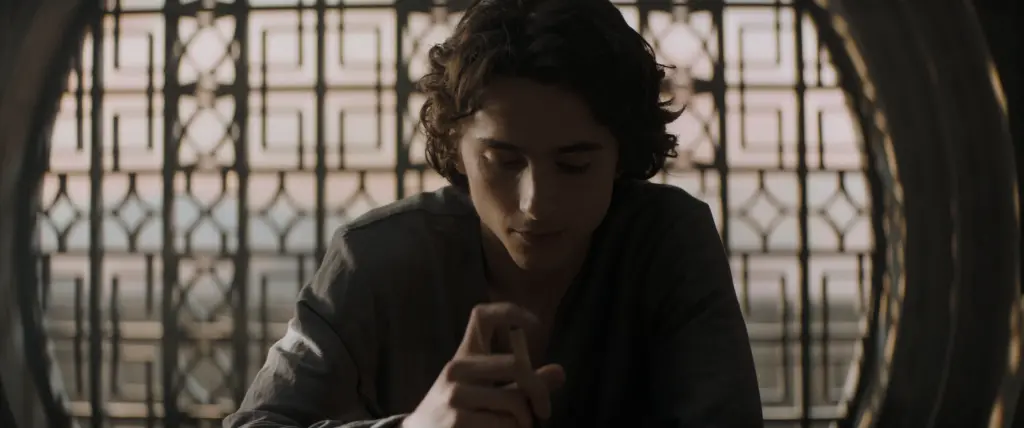
The story of Dune begins its focus on Paul Atreides, son of Duke Leto Atreides and heir to their House. House Atreides has become strong in both political and military power within the houses of the known universe, so the Emperor decides to install them as fief of Arrakis, Dune, deposing House Harkonen. House Harkonen have a long hatred of the Atreides, and the Emperor uses this opportunity to push the Harkonens to wipeout House Atreides.
Paul is the son of Lady Jessica, a devout member of the Bene Gesserit, a secret order of women who train their bodies and minds to obtain superhuman abilities seen as magic to outsiders. Over centuries, they have carefully steered bloodlines of the powerful Houses of the universe to birth a human with the most powerful mental abilities ever seen. They believe this person would be able to control the known universe and bring everlasting peace. Lady Jessica gave birth to Paul in defiance of the order, giving him the seeds of this power.
Arrakis is the most politically important planet in the universe. The surface is covered in desert, and within the sands is a substance called spice. Spice is a powerful hallucinogen that will unlock a person's mind to its full capabilities. Genetically engineered and breed humans of the Spacing Guild use its power to unlock intergalactic space travel allowing humans to travel across galaxies. It is the most important and priceless substance in the universe. Those who control Arrakis harvest the spice and sell it within the universe's market, giving them immense wealth.
Prior to Paul's arrival on Arrakis, he has dreams showing his possible futures. On Arrakis, these dreams lead him to understanding the culture of native Arrakins known as Fremen. Spice opens and unlocks his mind to more dreams powerful and predictive. As his House is attacked and destroyed by the Harkonens, he and his mother are forced in the desert where the spice surrounds him. They find the Fremen and are accepted into their city.
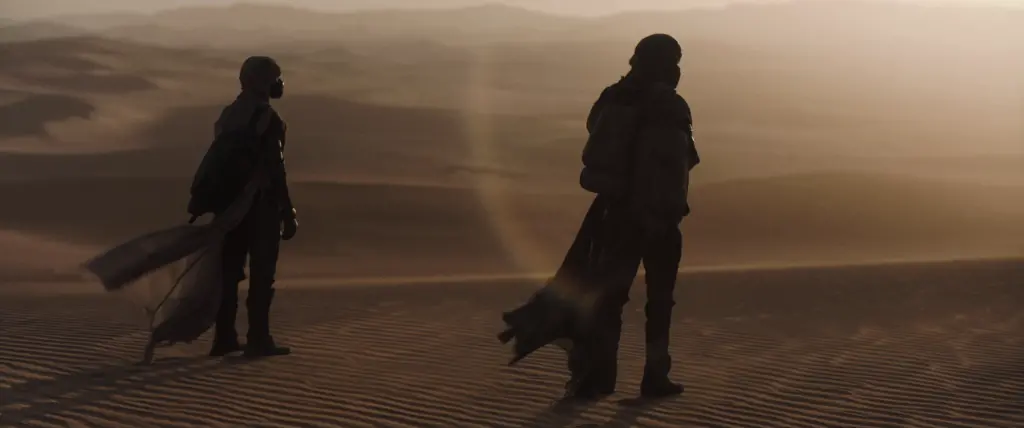
Dune 2021 is only Part 1 of a long long story that lasts thousands of years. It's doubtful that this movie series will actually make it that far, though. I think Villeneuve has said he only plans on adapting Paul's story, and not continuing the story of his children which continue into millennia. There is such a huge time gap, and it's somewhat disconnected from the purpose of the story, anyway.
Overall, the meaning and purpose of Dune is to show the consequences of faith and charismatic leadership.
The Bene Gesserit have seeded prophecy across the universe. Over generations, simple rumors and tales of a promised warrior destined to save their people from evil has turned into religion and faith. These religions consume planets and create populations of devote followers. All under the guise of the Bene Gesserit projecting themselves as deities.
The Arrakins and Fremen see Paul arrive on Dune and they see this prophet. Paul's interest and obsession of Arrakis as well as his mental conditioning allows him to quickly adapt and understand their culture. Arrakins confuse this as prophecy. All they have ever known is oppression and with the emergence of hope, they cling to it and force themselves and Paul into it.
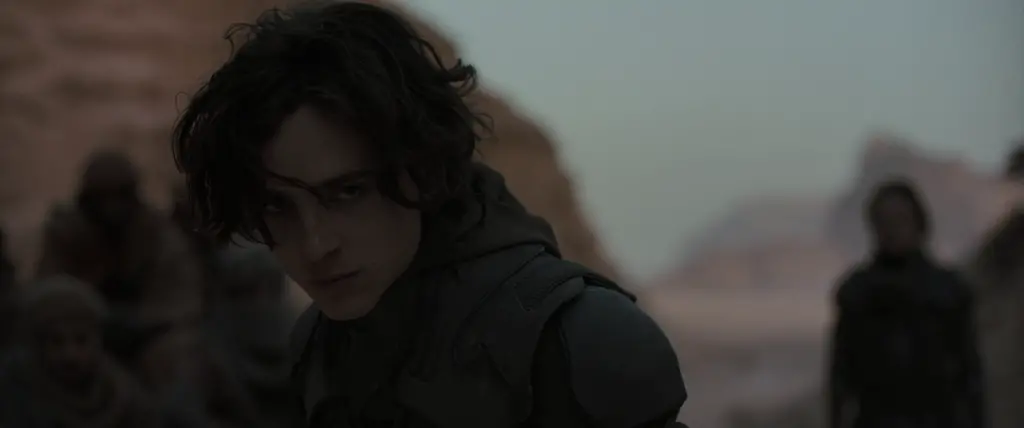
Spoilers, but this will be the center-piece of Dune Part 2. Continuing with further spoilers, ultimately, this holy crusade is inevitable and worlds worth of people and civilizations die as a result. That'll be Dune Part 3, which I hope to god they are able to make.
Something Dune Part 1 does exceedingly well is show how Paul takes reluctant responsibility. There have been many stories of reluctant heroes, and they always whine about not wanting to do what they have to do. Paul states at the beginning that he does not want to lead.
With the death of his father, he is now Duke Atreides. He doesn't try to ignore his potential political power as head of his House. He thinks of ways of how to use it to turn the situation into his favor. He accepts his responsibility.
In the final act of the film, a Fremen warrior forces him into combat where the victor is determined by the death of the other. Paul easily outmatches him, but attempts to find a middle ground having never actually killed before. While other stories would have the hero give up or whine about it, Paul understands that he must kill. And so he does.
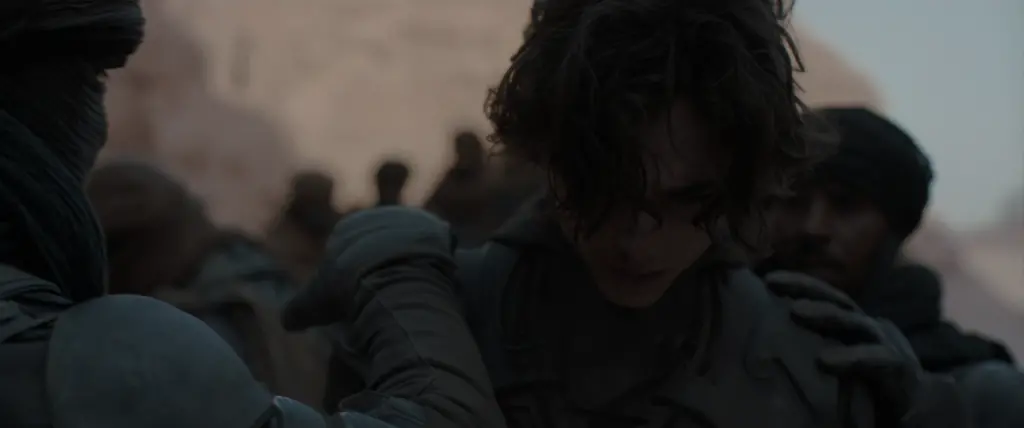
This death weighs on him. Yes, it's his first kill, but it's also the first direct casualty on his path forward. A path that he is forced to take and he will not back down from. He confirms this by saying that his road leads into the desert, not off world. He takes responsibility for what he must do, but also feels the weight of it.
While the story subtly builds, the design and music become the most dynamic parts of the film. The technology and structures of Dune are never explained in the film, so we're presented with vehicles and tools that appear to work like magic, their shapes often abstract. Many shots in the film show their immense scale.
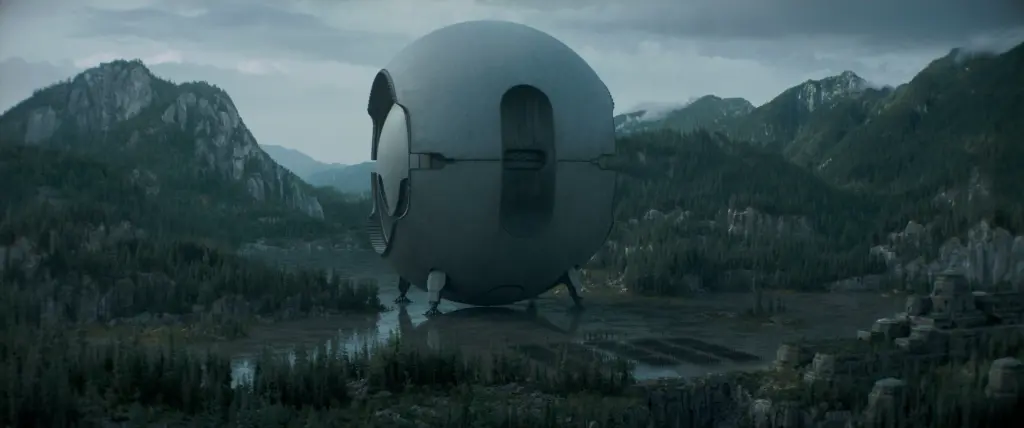
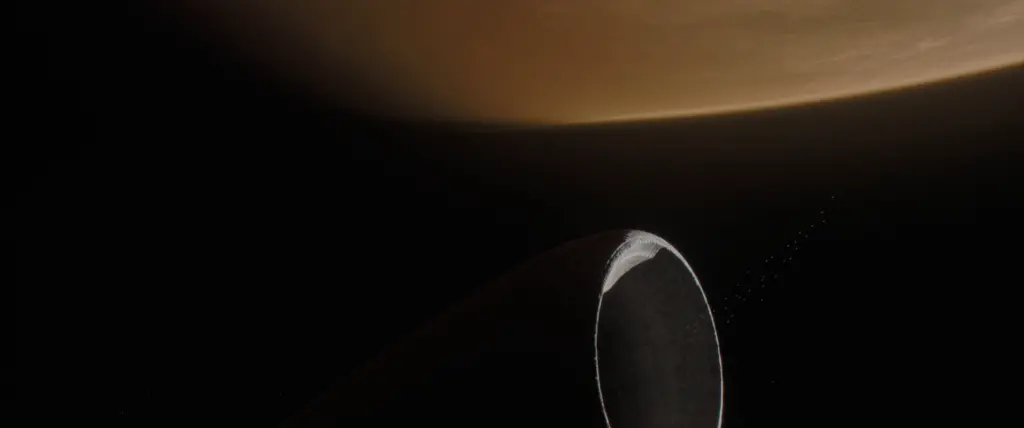
The size of a single person cannot even be measured against these enormous objects. However, their reach and power extends far beyond their size.
Every person in Dune is descent from humans. Over millennia of genetic engineering, conditioning, and life on distant separate planets have turned many human sub-specie into something alien. Their design make them feel alien, too, unlike other science fiction works.
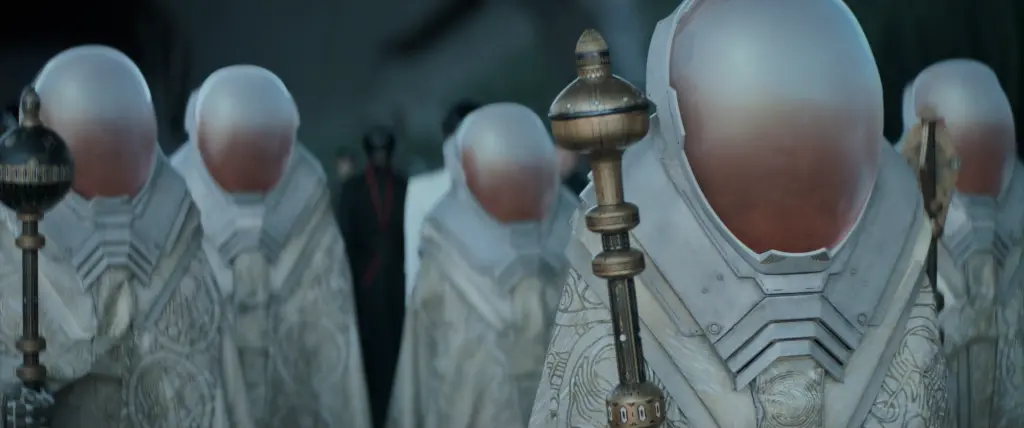
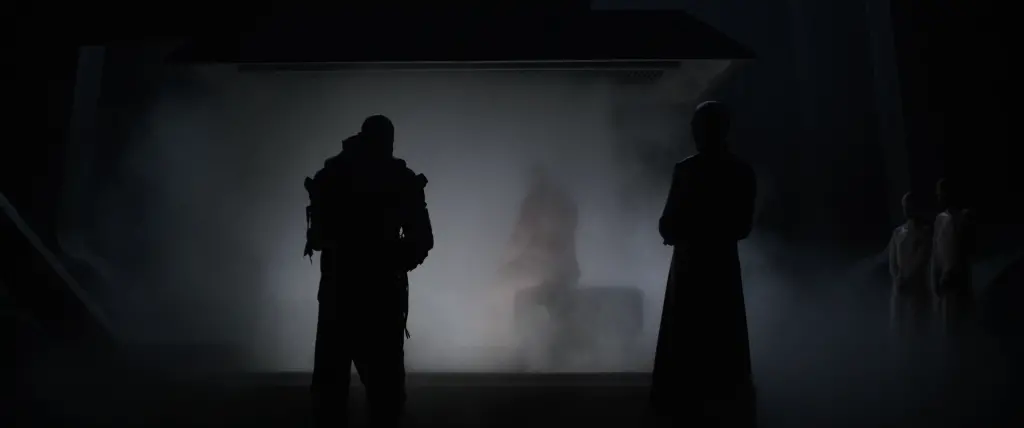
Visually, I think Dune is stunning. Artistic care has been taken in every shot. It's like watching a painting unfold on the screen.
The music of Dune completes Denis Villieneuve's artistic vision. Hans Zimmer's score fully complements the scale of the imagery, and guides the viewer through the story and the world.
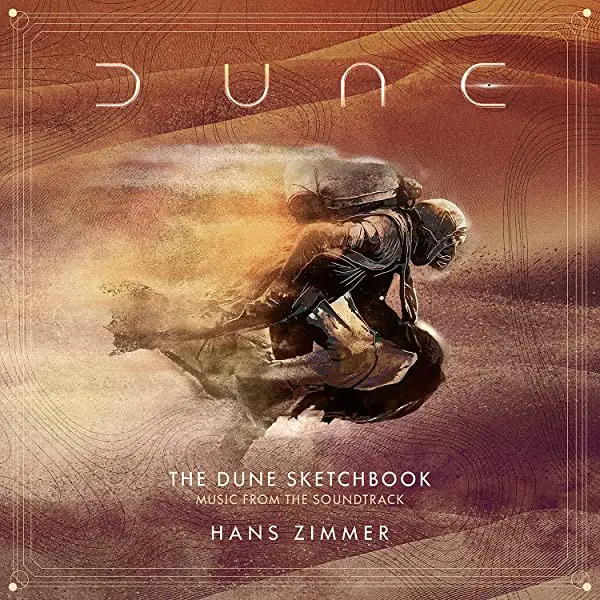
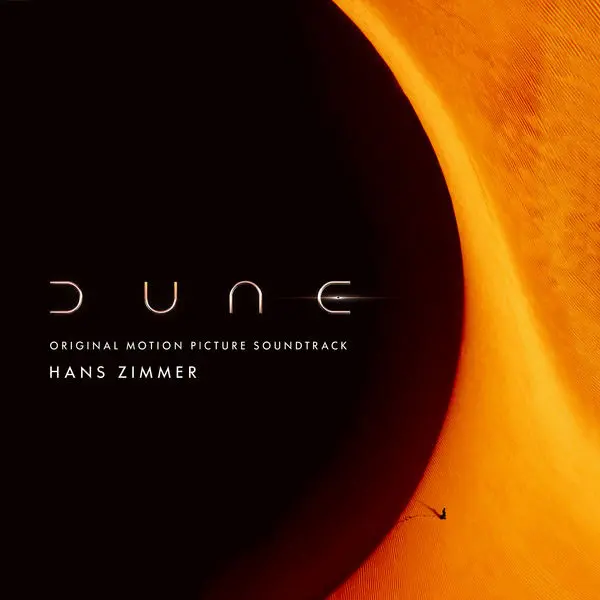
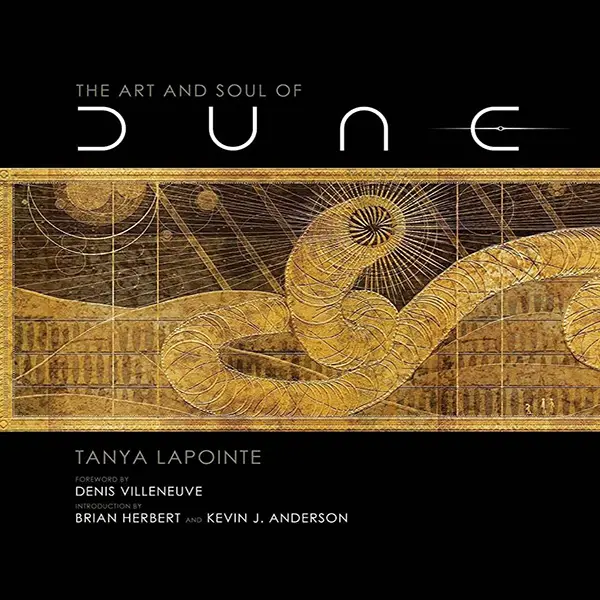
The music of Dune was released in three separate albums. Prior to the film's release, Hans Zimmer released The Dune Sketchbook, which featured music from the movie but presented them in a meandering build, like he was trying to find the sound from his ideas, like an artist uses a sketchbook. As such, some tracks are very even and don't really work together as a complete album.
A few weeks later, Dune The Motion Picture Soundtrack was released. This album had 22 tracks of score that was directly included in the film. No extras or changes like the Sketchbook. However, tracks that were extended in the Sketchbook were not included in the Soundtrack.
After the movie was released, I combined both albums together to create a more complete musical journey analogous to the build of the film. Some sketchbook tracks didn't work as they were too uneven, so I put Moon Over Caladan first, and removed Song of the Sisters. If you did include Sone of the Sisters, it would go after The One, but I think it breaks up the movement from the Gom Jabbar to Leaving Caladan. It also has redundant sounds from Bene Gesserit.
Here is my arranged tracklisting combining both albums.
| 1. | Moon Over Caladan | The Dune Sketchbook — Track 6 |
| 2. | Dream of Arrakis | Dune Soundtrack — Track 1 |
| 3. | Herald of the Change | Dune Soundtrack — Track 2 |
| 4. | I See You in My Dreams | The Dune Sketchbook — Track 2 |
| 5. | Bene Gesserit | Dune Soundtrack — Track 3 |
| 6. | Gom Jabbar | Dune Soundtrack — Track 4 |
| 7. | The One | Dune Soundtrack — Track 5 |
| — | Song of the Sisters | The Dune Sketchbook — Track 1 |
| 8. | Paul's Dream | The Dune Sketchbook — Track 5 |
| 9. | Leaving Caladan | Dune Soundtrack — Track 6 |
| 10. | House Atreides | The Dune Sketchbook — Track 3 |
| 11. | Arrakeen | Dune Soundtrack — Track 7 |
| 12. | Ripples in the Sand | Dune Soundtrack — Track 8 |
| 13. | The Shortening of the Way | The Dune Sketchbook — Track 4 |
| 14. | Visions of Chani | Dune Soundtrack — Track 9 |
| 15. | Night on Arrakis | Dune Soundtrack — Track 10 |
| 16. | Armada | Dune Soundtrack — Track 11 |
| 17. | Burning Palms | Dune Soundtrack — Track 12 |
| 18. | Stranded | Dune Soundtrack — Track 13 |
| 19. | Blood for Blood | Dune Soundtrack — Track 14 |
| 20. | The Fall | Dune Soundtrack — Track 15 |
| 21. | Holy War | Dune Soundtrack — Track 16 |
| 22. | Sanctuary | Dune Soundtrack — Track 17 |
| 23. | Premonition | Dune Soundtrack — Track 18 |
| 24. | Ornithopter | Dune Soundtrack — Track 19 |
| 25. | Sandstorm | Dune Soundtrack — Track 20 |
| 26. | Shai-hulud | The Dune Sketchbook — Track 7 |
| 27. | Stillsuits | Dune Soundtrack — Track 21 |
| 28. | Mind Killer | The Dune Sketchbook — Track 8 |
| 29. | My Road Leads into the Desert | Dune Soundtrack — Track 22 |
| 30. | Grains of Sand | The Dune Sketchbook — Track 9 |
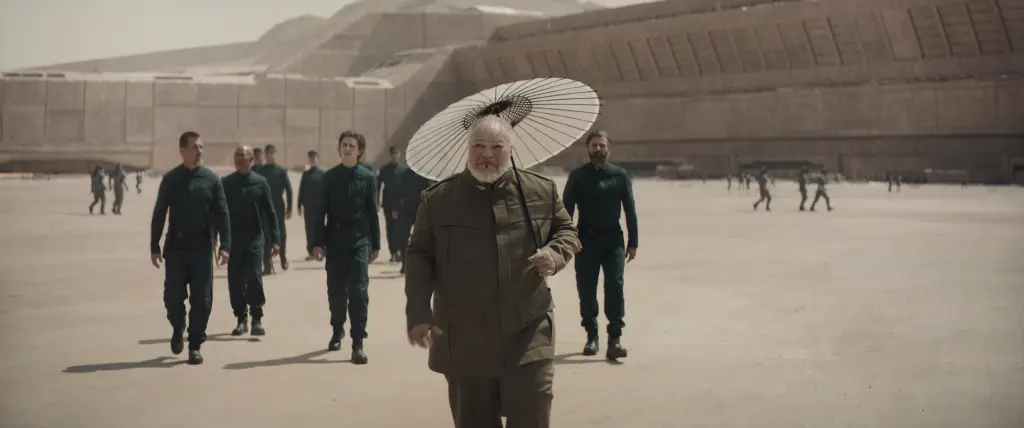 The movie doesn't tell you that Paul has also been trained as a mentat, which gives him the ability to learn about Arrakis and the Fremen incredibly quickly.Everything you need to know about the overall lore of Dune is hinted at or mentioned briefly. Despite not giving you enough information, the movie respects the viewer enough to make those connections in the future, or review the source material to confirm your connections.The Future of DuneThe end of Dune Part 1 is the most jarring part of the film. There's no real ending to the film at all. It just stops. I suppose this was alluded to at the beginning when the full title of the film "Dune Part 1" was revealed. It makes sense as this is a single part of an overall story, but it's still jarring. Dune Part 2 will continue directly where Part 1 ends. And I expect Dune Part 3 will be the conclusion of Paul Atreides story. Denis Villeneuve has professed in interviews that he is a lifelong fan of Dune, and it has always been his dream to create a series of motion pictures that perfectly capture and encapsulate the story of Paul Atreides. I imagine that we will get a complete trilogy of Paul's story. But, the further story of his children may or may not be told.I imagine that Villeneuve will probably move on to something else after three Dune films, but the greedy studio will push ahead with Children of Dune. I suppose that is our problem in the future to deal with.
The movie doesn't tell you that Paul has also been trained as a mentat, which gives him the ability to learn about Arrakis and the Fremen incredibly quickly.Everything you need to know about the overall lore of Dune is hinted at or mentioned briefly. Despite not giving you enough information, the movie respects the viewer enough to make those connections in the future, or review the source material to confirm your connections.The Future of DuneThe end of Dune Part 1 is the most jarring part of the film. There's no real ending to the film at all. It just stops. I suppose this was alluded to at the beginning when the full title of the film "Dune Part 1" was revealed. It makes sense as this is a single part of an overall story, but it's still jarring. Dune Part 2 will continue directly where Part 1 ends. And I expect Dune Part 3 will be the conclusion of Paul Atreides story. Denis Villeneuve has professed in interviews that he is a lifelong fan of Dune, and it has always been his dream to create a series of motion pictures that perfectly capture and encapsulate the story of Paul Atreides. I imagine that we will get a complete trilogy of Paul's story. But, the further story of his children may or may not be told.I imagine that Villeneuve will probably move on to something else after three Dune films, but the greedy studio will push ahead with Children of Dune. I suppose that is our problem in the future to deal with.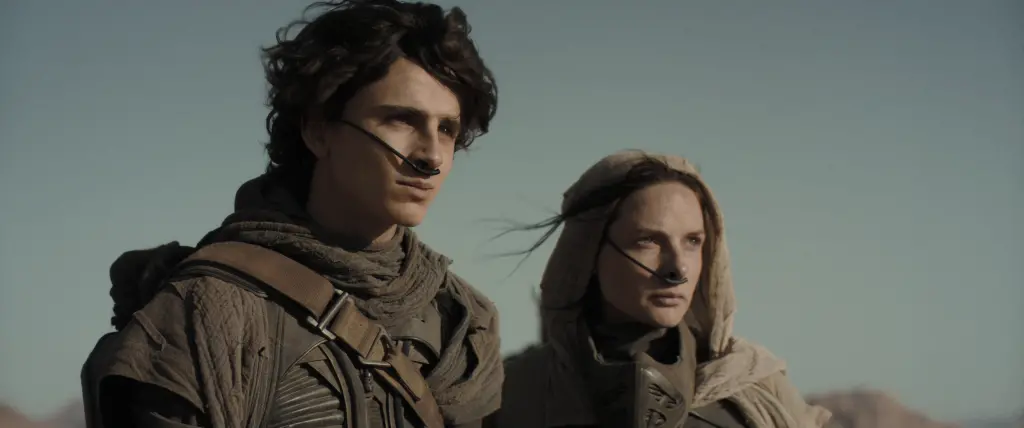 I eagerly anticipate what will come in the future.
I eagerly anticipate what will come in the future.






















































































